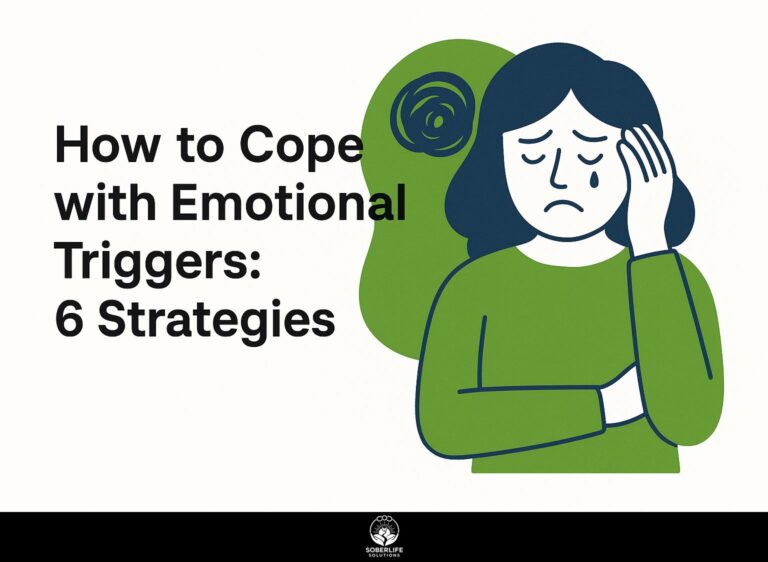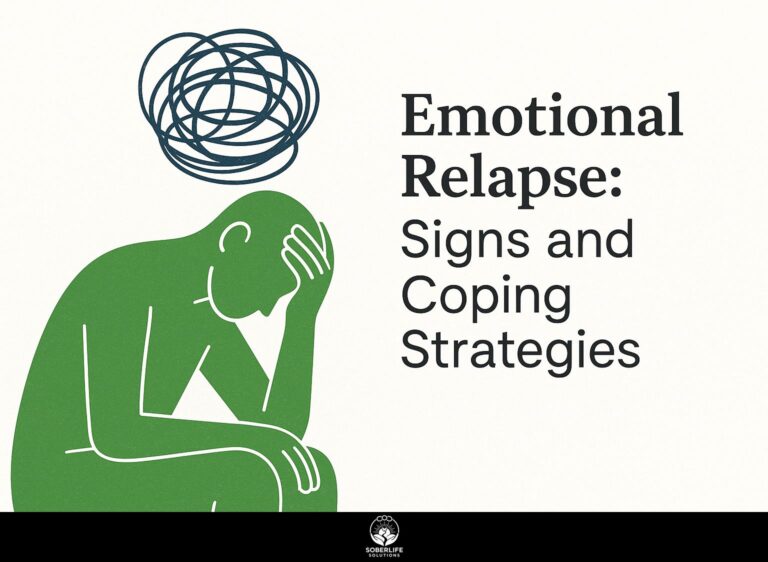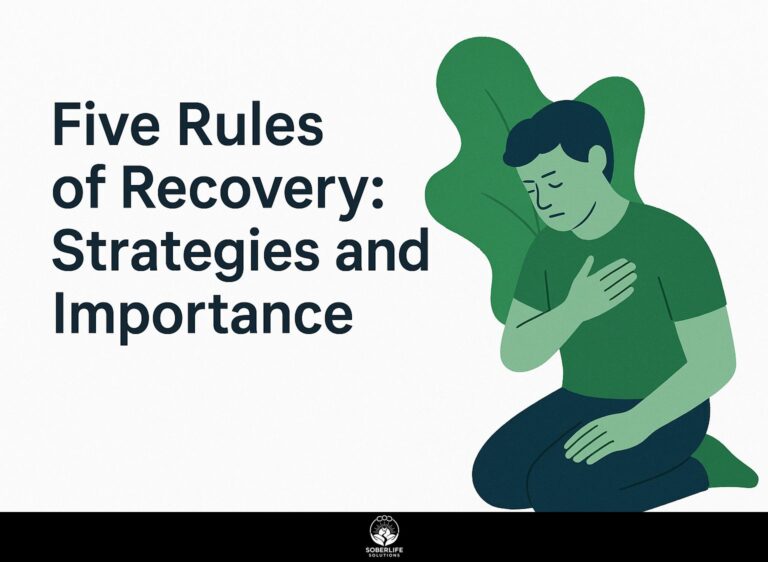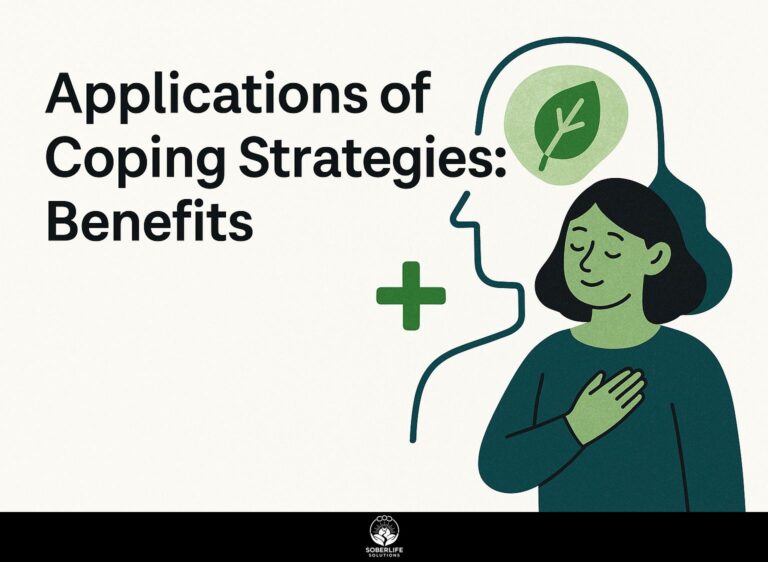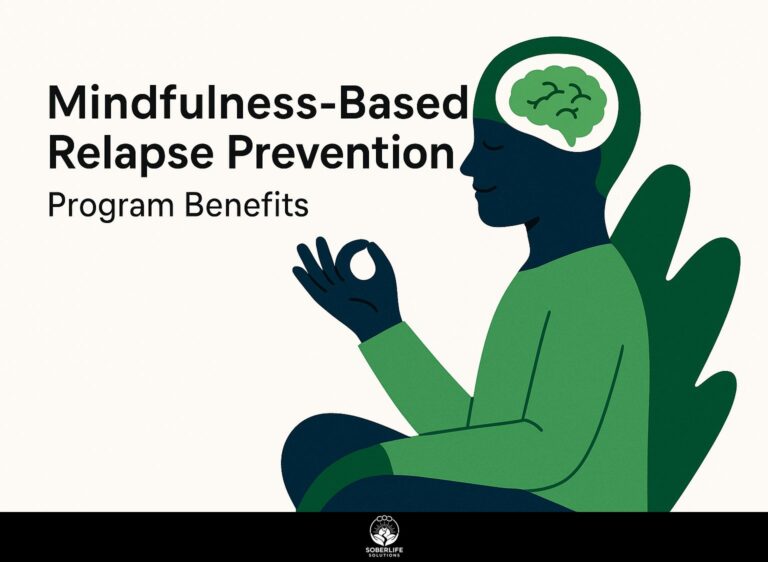Coping Mechanisms: Strategies for Alcoholism Recovery
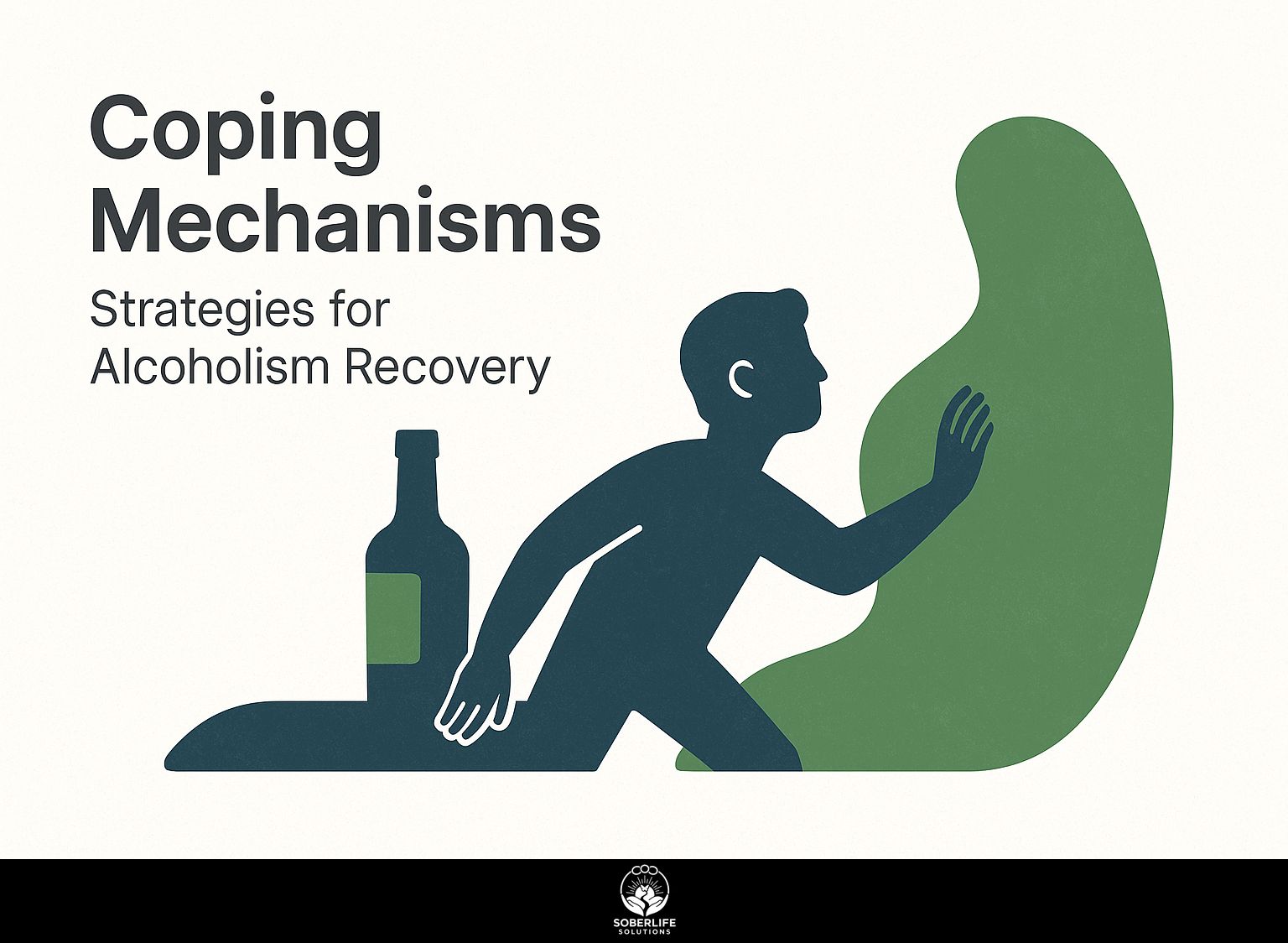
Finding a way to recover from alcohol dependence involves using personal coping skills that match each person’s requirements. Whether you’re looking at strategies for specific situations or general lifestyle changes, knowing how to apply cognitive-behavioral treatments can greatly improve your drinking habits. This article explores key strategies for dealing with challenges, providing useful ideas and practical tips to help with long-term recovery. Learn how to turn difficulties into advantages, preparing for a healthier life without alcohol.
Key Takeaways:
The Importance of Coping Mechanisms in Recovery
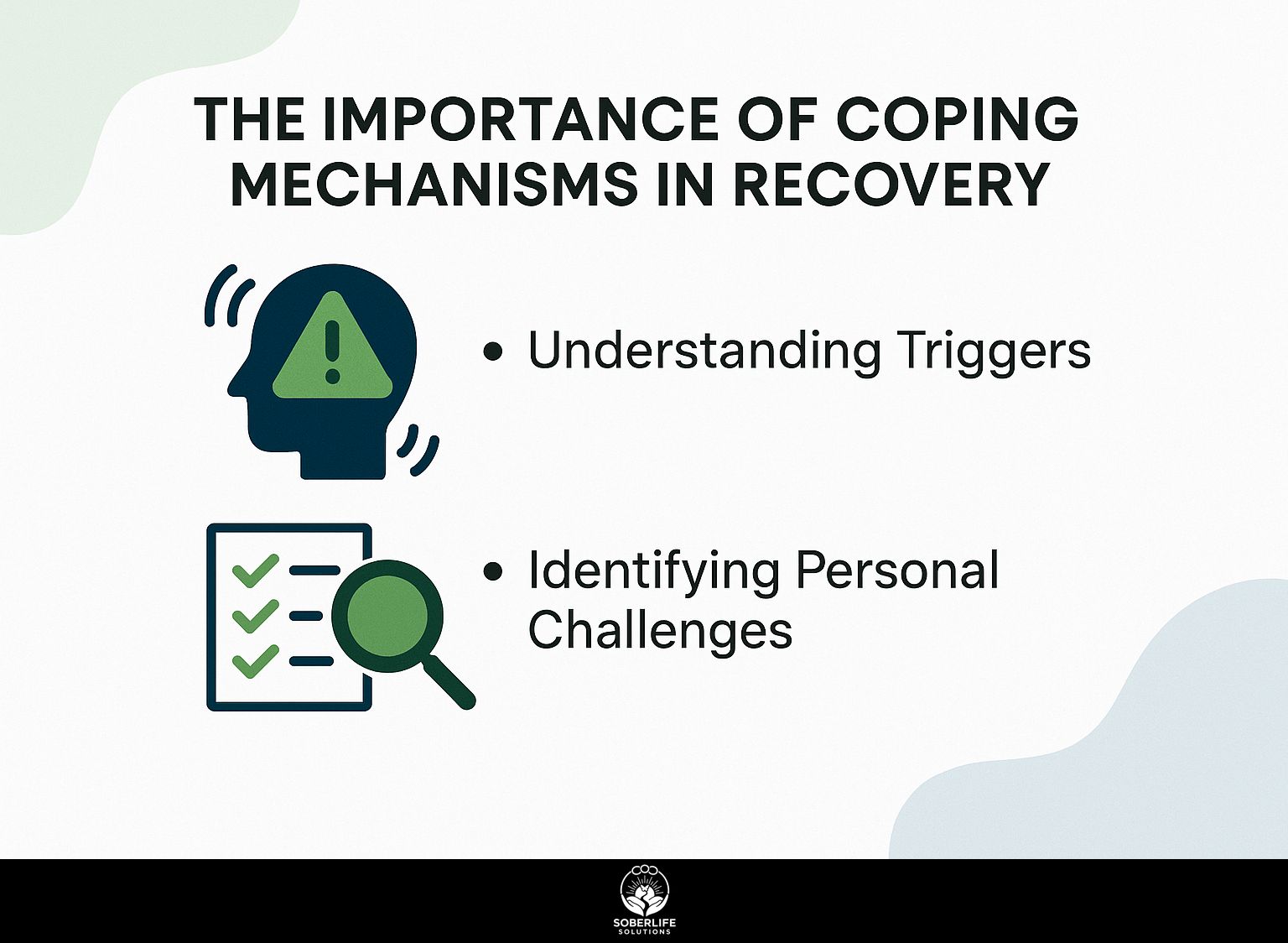
Effective coping strategies can reduce the risk of returning to previous behaviors by up to half, making them an important component of any treatment plan. This is underscored by a study published in ScienceDirect that highlights the role of coping skills training in relapse prevention. For an extensive analysis of this trend, our comprehensive study of CBT4CBT for AUD recovery examines the practical application and benefits.
Understanding Triggers
Recognizing emotional triggers is the first step in developing effective coping strategies for managing alcohol dependence.
To identify these triggers, consider journaling your feelings when you experience the urge to drink. You can note specific situations or emotions, such as stress from work or social gatherings that feel overwhelming.
Self-report instruments, like the Alcohol Use Disorders Identification Test (AUDIT), can also help detect patterns in your drinking behavior. Over time, track these triggers to identify recurring themes. Doing this every week can help you develop personal ways to manage stress, such as finding new methods to deal with it or using relaxation techniques in social situations. For further insights, our [featured guide on coping with emotional triggers](https://soberlifesolutions.com/cope-emotional-triggers-strategies/) provides six effective strategies. For a deeper understanding of how emotions can trigger cravings, the American Psychological Association provides compelling insights.
Identifying Personal Challenges
Individuals in recovery must assess their unique challenges, which can vary widely based on personal circumstances and coping styles.
To start this self-assessment, use a detailed questionnaire that covers different areas of life. Consider including sections on past triggers, current stressors, and support systems.
For instance, questions might examine how stress shows up in your daily routine or identify healthy methods you use to manage stress. Tools like Google Forms can make this process interactive and easily accessible.
By reflecting on these areas, individuals can better understand their challenges and tailor their recovery strategies, setting a strong foundation for sustained progress.
Healthy Coping Strategies
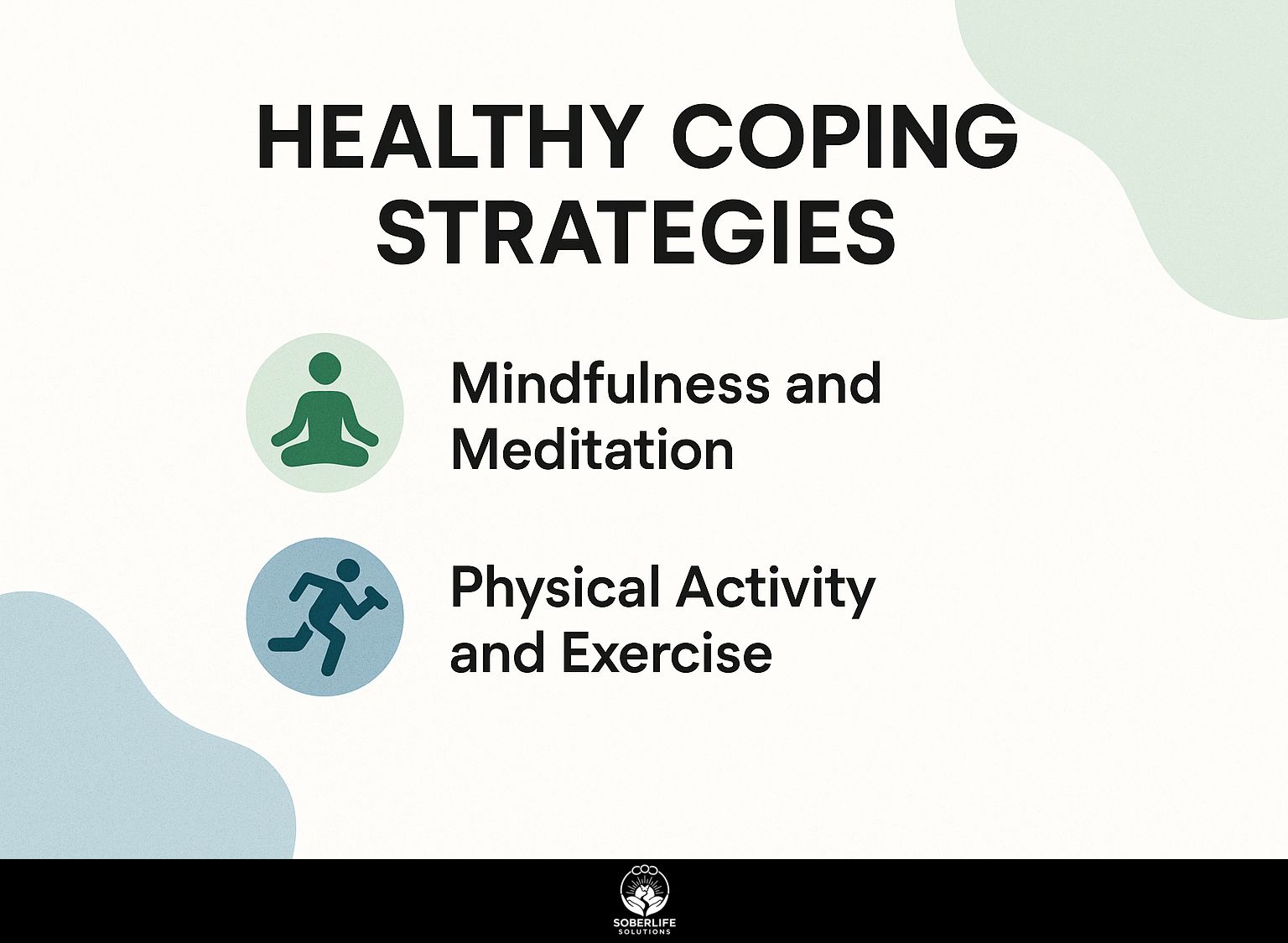
Using healthy ways to manage stress is essential for successful recovery and emotional control. For a more in-depth understanding, our article on managing stress and emotions with healthy strategies in recovery elaborates on practical techniques to enhance your well-being.
Mindfulness and Meditation
Mindfulness exercises have been shown to improve emotional resilience, with studies indicating a 30% reduction in stress levels among participants.
To bring mindfulness into your daily routine, try the ‘5-4-3-2-1’ grounding exercise:
- Name 5 things you can see,
- 4 things you can touch,
- 3 things you can hear,
- 2 things you can smell, and
- 1 thing you can taste.
You can improve your meditation routine by using apps like Headspace or Calm, which provide organized sessions for about $12 per month. For more detailed insights, Verywell Mind outlines the numerous health benefits associated with mindfulness-based stress reduction.
Aim for a 10-minute daily routine, gradually increasing the duration as you become more comfortable. Practicing regularly can greatly improve your emotional health.
Physical Activity and Exercise
Exercising regularly can improve mood and lower anxiety, serving as an important way to recover from substance addiction.
To support your recovery, focus on including various types of exercise in your routine. Aim for at least 150 minutes of activity each week, which can include aerobic exercises like brisk walking or cycling, along with strength training activities such as bodyweight workouts or resistance band exercises.
Local resources might include community fitness classes or recreational centers.
Apps like MyFitnessPal can help you record your workouts and monitor your progress, keeping you motivated and responsible during your recovery.
Social Support Systems
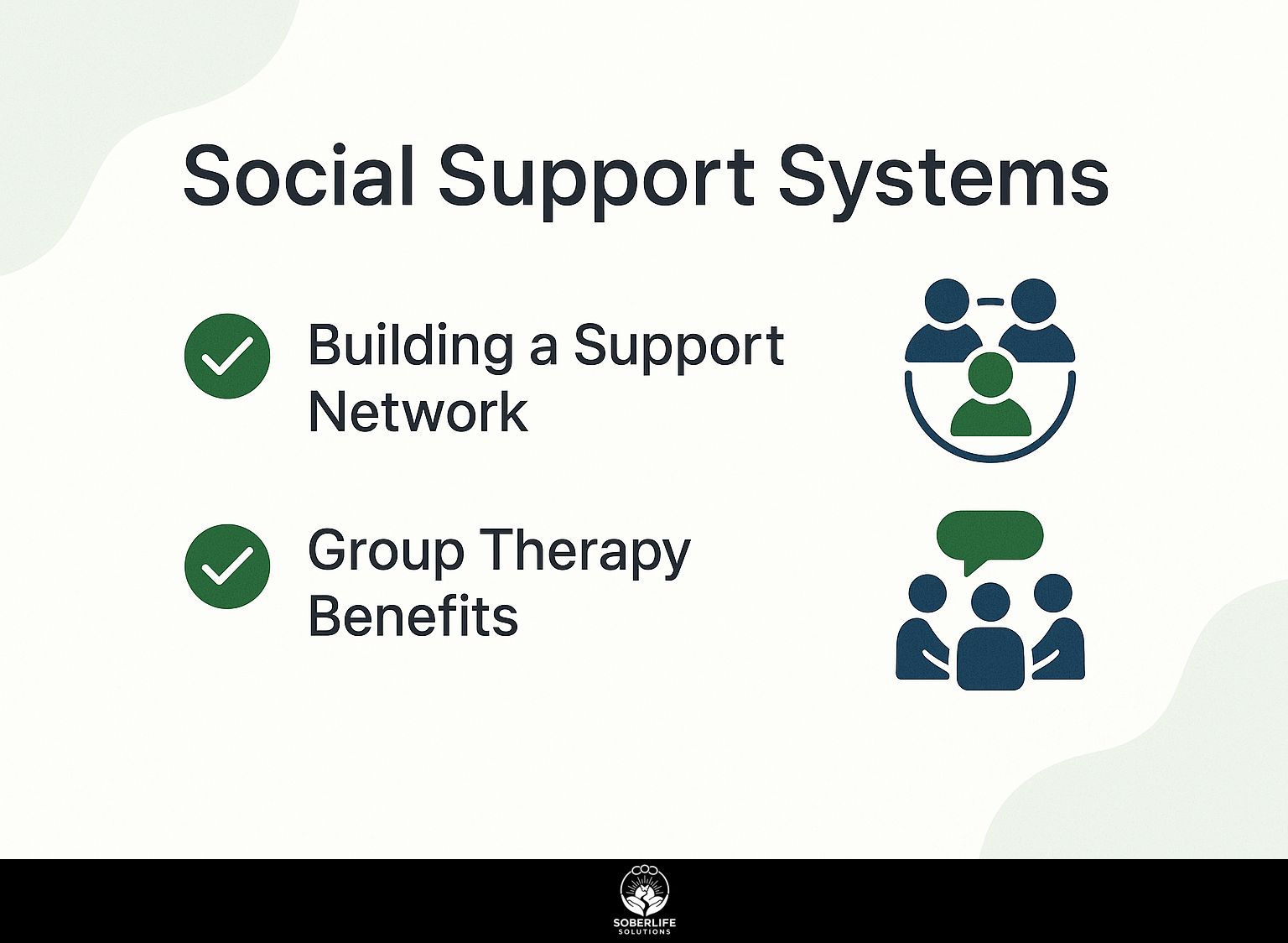
A strong social support system can greatly improve recovery results, helping people handle their problems more effectively. Related insight: How to Build a Support Network: Key Strategies can provide further guidance on creating a robust support system.
Building a Support Network
Creating a strong support network involves identifying trusted individuals who can provide encouragement and accountability.
- Start by listing key people in your life: friends, family, mentors, or colleagues.
- Clearly state what you want from the conversation-do you need guidance, encouragement, or just someone to listen?
- To maintain engagement, schedule regular check-ins, whether weekly coffee meetings or monthly video calls.
- Try using resources like Meetup to connect with local groups, or apps like Marco Polo for messaging that doesn’t need everyone to be online at once. This makes sharing progress and challenges simple.
- Using these tools can strengthen the feeling of community and help in your network.
Group Therapy Benefits
Group therapy can increase motivation and provide new perspectives. Studies show that people involved see a 40% increase in their coping skills.
In these environments, people talk about their experiences, creating a feeling of community and acceptance.
12-Step meetings, for example, emphasize honesty and accountability, encouraging members to discuss their challenges openly. Sharing these stories helps people see that difficulties are common and shows that getting better can happen.
Leaders guide discussions, ensuring the environment is secure and all participants feel comfortable voicing their opinions. Tools such as group exercises and feedback sessions encourage teamwork, allowing members to learn from each other’s thoughts and experiences, strengthening their personal growth.
Professional Help and Resources
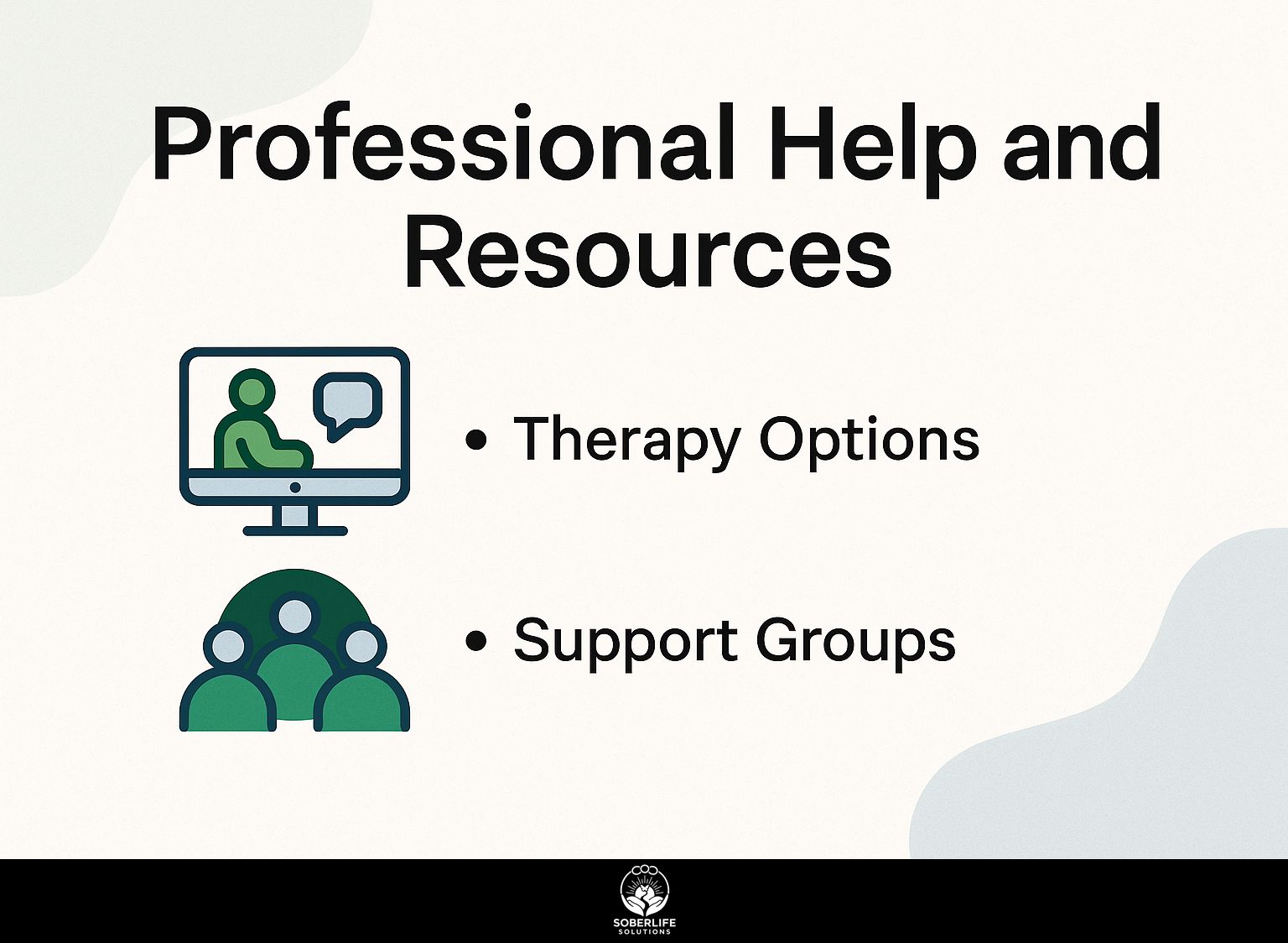
Getting expert help is important for creating custom methods to manage during recovery. This includes understanding the benefits of various therapies (our Therapies for Alcoholism: Techniques, Benefits, and Recovery article provides deeper insights).
Therapy Options
Cognitive-behavioral therapies (CBT) are highly effective in treating alcohol dependence, with success rates exceeding 60% in many studies.
CBT focuses on identifying and changing negative thought patterns and behaviors associated with alcohol use. For instance, clients may learn to recognize triggers and develop coping strategies.
Motivational interviewing (MI) supports clients in making changes by listening carefully and providing targeted feedback.
To look into these choices, try using resources such as Psychology Today to locate local therapists who focus on these techniques.
Platforms like BetterHelp provide online sessions, allowing people to access support while staying at home.
Support Groups
Support groups like Alcoholics Anonymous provide important help for people wanting to stay sober and find ways to handle challenges.
These groups offer a structured environment where participants can share experiences and gain encouragement. A major benefit of 12-Step meetings is their consistent structure, which helps newcomers easily grasp and follow the steps.
Success stories abound, such as members who found lasting sobriety after years of struggle, reinforcing the importance of community support.
To find local or online meetings, websites like AlcoholicsAnonymous.com or 12step.org are excellent resources. Participating in these helpful settings greatly improves recovery.
Long-Term Recovery and Maintenance
Maintaining recovery means continuing to work on and adjust your ways of dealing with life’s difficulties.
To promote continuous self-care, establish a daily routine that includes physical activity, mindfulness practices, and nutritious meals.
Regular check-ins with support networks, such as friends, family, or support groups, can provide encouragement and accountability.
Evaluate and change your ways of dealing with stress when faced with new challenges. For example, if work becomes more demanding, consider integrating short breaks for breathing exercises or journaling to process feelings.
By managing your health, you can face difficulties and remain resilient while healing.
Frequently Asked Questions
What are coping mechanisms for alcoholism recovery?
Coping mechanisms are strategies and techniques that individuals use to deal with difficult situations and emotions, such as the desire to drink alcohol. These can include healthy activities and practices that promote self-care, stress management, and emotional regulation.
Why are coping mechanisms important for alcoholism recovery?
Coping mechanisms are critical for alcoholism recovery because they help individuals manage the triggers and challenges that may lead to relapse. By using effective coping mechanisms, individuals can develop healthier ways of dealing with stress and emotions, without turning to alcohol.
What are some common coping mechanisms for alcoholism recovery?
There are many different coping mechanisms that individuals can use to support their alcoholism recovery. These can include exercise, therapy, support groups, hobbies, mindfulness practices, and healthy outlets for stress relief such as journaling or art.
How do I know which coping mechanisms will work for me?
Each person is different, and what suits one individual might not suit someone else. It’s important to try out different coping mechanisms and see which ones feel helpful and sustainable for your specific needs and situation. Talking to a therapist or joining a support group can help you look into various choices and find what suits you best.
What should I do if my coping mechanisms are not working for me?
If you find that your coping mechanisms are not effective in managing your alcoholism recovery, it’s important to reach out for support. You can talk to a therapist, join a support group, or connect with a sponsor or sober friend who can offer guidance and help you find more suitable coping strategies.
Can I develop new coping mechanisms during my alcoholism recovery?
Yes, you can always learn new ways to handle stress. As individuals progress in their recovery, they may find that some techniques that once worked for them may not be as effective anymore. It’s important to continually assess and adjust coping mechanisms as needed, and be open to trying new strategies that can support ongoing recovery.

